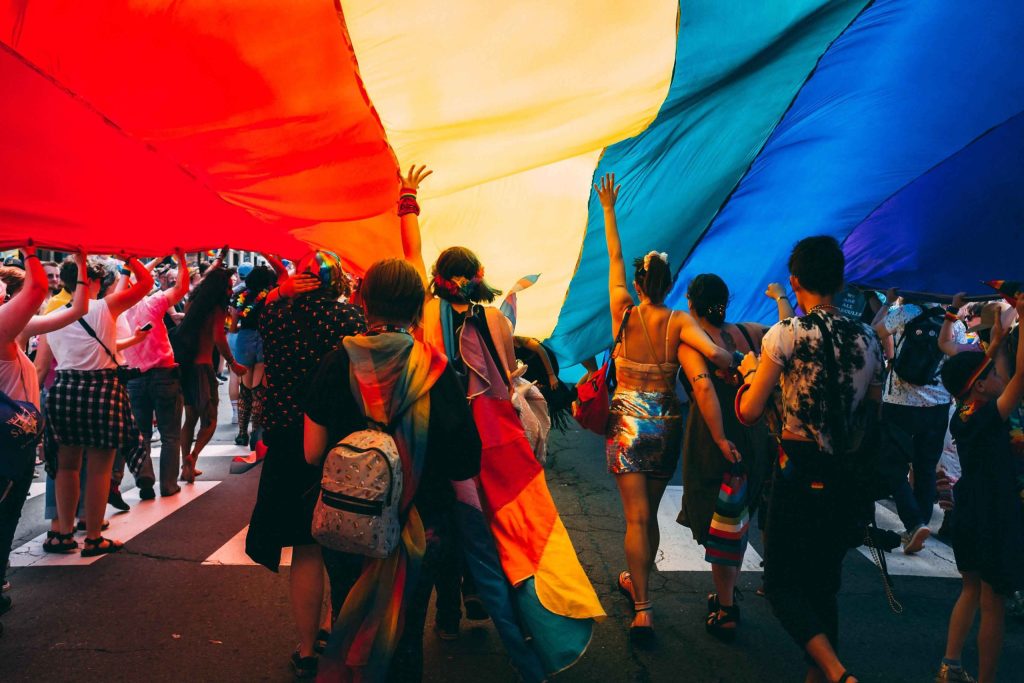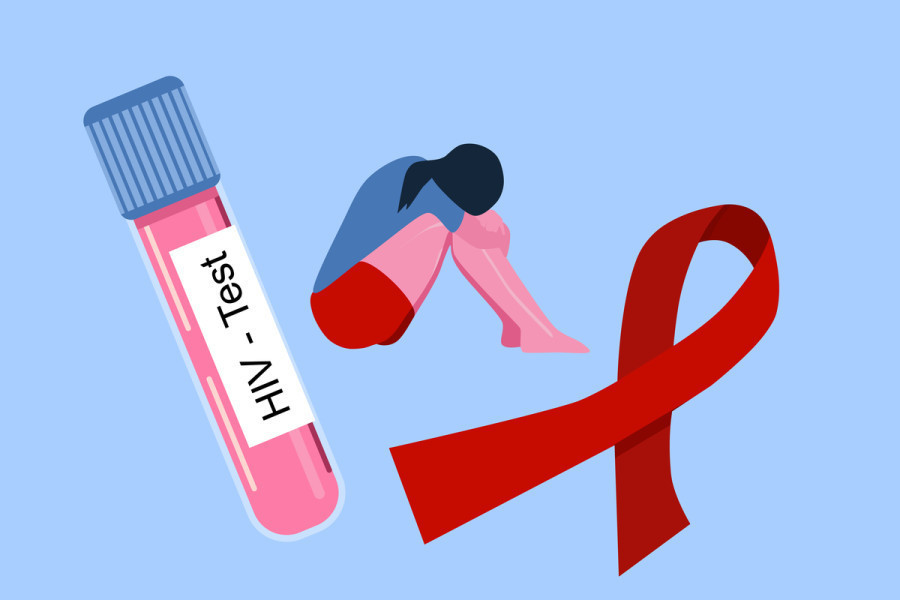USAID cuts have dire impact on LGBTQ services in Nepal and Botswana
USAID formerly provided key funding for HIV prevention and care, plus LGBTQ advocacy
The US government’s freeze of funding through USAID has had devastating impacts on LGBTQIA+ communities around the globe. Here are two glimpses of what the effect has been in Botswana and Nepal.

BOTSWANA
Nozizwe, the CEO of the Botswana LGBTQIA+ advocacy group LEGABIBO, recently released this statement on the impact of USAID funding cuts in Botswana, which was published by Kaleidoscope Trust.
For over two decades, Lesbians, Gays and Bisexuals of Botswana (LEGABIBO) has stood as a beacon of hope and resilience for Botswana’s LGBTQIA+ community. As one of the leading voices in the fight for human rights, equitable healthcare access, and community empowerment, LEGABIBO has tirelessly worked to bridge gaps for individuals who face systemic stigma and discrimination based on their sexual orientation, gender identity, and expression.
While LEGABIBO does not provide clinical services, our impact has been profound. From securing landmark legal victories to driving policy change and supporting marginalised communities, we have helped transform the landscape for LGBTQIA+ rights in Botswana. One of our proudest moments came in 2019, when Botswana’s High Court decriminalised same-sex relations—a monumental step forward that reaffirmed the dignity and rights of LGBTQIA+ people in Botswana.
However, the progress we have fought so hard to achieve is now under serious threat.
The Funding Freeze Jeopardizing Decades of Progress
The recent funding freeze triggered by stop orders from the US administration has placed LEGABIBO and the communities we serve in an unprecedented crisis. This sudden withdrawal of critical resources threatens to undo years of hard-earned progress, leaving the most vulnerable in jeopardy.
LEGABIBO has been a key recipient of programmatic funding from PEPFAR (President’s Emergency Plan for AIDS Relief), enabling us to conduct vital advocacy, community engagement, research, and awareness-raising around sexual orientation and gender identity. This support has been the lifeblood of our operations — supporting training and sensitisation of law enforcement, healthcare workers, and policymakers, while also ensuring grassroots movements thrive.
Now, facing an income cut exceeding 75%, LEGABIBO is being forced into heartbreaking decisions. The impacts are already being felt, and the consequences are stark:
- Policy advocacy efforts are grinding to a halt, weakening protections for LGBTQIA+ persons.
- Training and sensitisation programs have stalled, risking increased discrimination and human rights violations.
- Grassroots movement-building is dwindling, silencing marginalised voices and shrinking safe spaces.
- Four out of five national Drop-In Centres have shut their doors, cutting off essential healthcare and psychosocial support.
- Staff layoffs are underway, gutting our operational capacity and devastating our team of dedicated advocates.
- Unemployment is rising, worsening mental health struggles in a country already battling high joblessness and growing suicide rates.
- HIV infections are likely to rise, reversing crucial progress made in combating the epidemic.
A Lifeline Now Closing
Among the most devastating casualties of this funding crisis are LEGABIBO’s Drop-In Centres. For many LGBTQIA+ people living in Botswana, these centres represent more than just a service — they are lifelines. They provide stigma-free healthcare and their closure means:
- HIV-positive individuals risk treatment interruptions, increasing both their viral load and the risk of transmission.
- HIV prevention programs like PrEP access are at risk, leaving the community more vulnerable to new infections.
- Mental health services vanish, leaving a gaping hole in a fragile landscape where support is already scarce.
This is not just a funding crisis — it is a human rights emergency. Without urgent intervention, Botswana risks sliding backward, losing decades of progress in the fight for equality, dignity, and public health.
The loss of these services and advocacy efforts will not only harm LGBTQIA+ people but also compounds national challenges. Rising unemployment, deteriorating mental health, and increasing HIV infections will strain Botswana’s social and economic fabric at a time when resilience is most needed.
The livelihoods of activists and advocates — people who have dedicated their lives to this cause — are now on the line. Their voices, which have carried the movement forward, risk being silenced. The momentum we’ve built is fragile and at risk of collapsing without support.
We are calling on allies, partners, and the global community to recognise the gravity of this moment. The need is urgent. The stakes are high. Without immediate support, Botswana faces a regression that will reverberate far beyond our borders.

NEPAL
The Kathmandu Post has reported that the elimination of USAID funding has caused programs aimed at treating and preventing HIV in Nepal to shut down indefinitely. That report is reproduced below.
Nepal HIV prevention efforts grind to halt after USAID pullback
By Arjun Poudel
Hundreds of female sex workers, gay men, and people taking injectable drugs in Nepal have been deprived of pre-exposure prophylaxis since the USAID-funded programmes were suspended in the last week of January.
Pre-exposure prophylaxis is a medicine that people at risk for HIV take to prevent infection.
“With the US government suspending nearly all foreign assistance worldwide for three months in the last week of January, the administration of pre-exposure prophylaxis medicine has been halted indefinitely,” said Lok Raj Pandey, information officer at the National Center for AIDS and STD Control.
“Since the Health Ministry does not have its own preventive programmes, hundreds of at-risk people, including pregnant women whose husbands are HIV positive, have been deprived of medicine. This medicine is given to such women to prevent transmission of infection from infected husbands.”
The halt in the administration of pre-exposure prophylaxis medicine is one of several HIV-related initiatives, which have been affected by the abrupt suspension of USAID-funded programmes. Awareness campaigns targeting female sex workers, homosexual men, and other high-risk groups, community testing of HIV, behavioural change and other targeted interventions have also been halted indefinitely.
Pandey informed that over 1,500 at-risk people from 26 high-risk districts were receiving medication through the USAID’s programme.
The affected districts include Jhapa, Morang, Sunsari, Saptari, Mahottari, Siraha, Dhanusha, Sarlahi, Bara, Rautahat, Parsa, Makawanpur, Chitwan, Kathmandu, Lalitpur, Bhaktapur, Kaski, Nawalparasi-East, Nawalparasi-West, Lumbini, Kapilvastu, Dang, Bardiya, Banke, Kailali, and Kanchanpur.
Health officials say that the government has allocated funds only for free testing and treatment of those already infected, and the responsibility of launching preventive measures, including awareness campaigns, was entrusted to USAID. They also said that the chances of allocating a budget for preventive programmes in the next fiscal year are also almost nil, as the budget ceiling for the upcoming fiscal year is too low to continue even basic services, including antiretroviral treatment and HIV testing programmes.
The budget ceiling for the next fiscal year has been reduced by 55 million rupees compared to the current fiscal year.
The centre provides antiretroviral medicines to over 25,000 people living with HIV, along with services like prevention of mother-to-child transmission, CD4 count and viral load tests, and HIV testing during pregnancy, among others, all free of cost.
By 2023, an estimated 30,300 people were living with HIV in Nepal. It is estimated that 261 people died of AIDS that year.
Along with programmes related to HIV prevention, several healthcare programmes for the ongoing fiscal year, including all funded by USAID, have been suspended.
Among the terminated programmes are key health surveys, including the micronutrient survey, which was planned over the past 10 years, the lymphatic filariasis transmission survey, and the promotion of exclusive breastfeeding at 18 major hospitals.
Other affected programmes include ‘outbreak investigation training’ for doctors, neonatal care training for hundreds of doctors and nurses, and various programmes related to the Sustainable Development Goals, including maternal and child health, nutrition, reproductive health, and family planning. Programmes under the Integrated Health Information Management System have also been hit.
Meanwhile, officials at the Center informed that the officials at the Ministry of Health and Population have assured to increase the budget ceiling, and the United Nations agency has committed to invest in HIV preventive programmes.
“UNDP has committed to invest in some preventive measures, including an awareness programme targeting migrant workers, prisoners, and people who inject drugs, but their programme has not started yet,” said Pandey. “We hope that the UN agency programme will begin soon.”





And we care why?
I and many other people care when others are harmed. Apparently you don’t.
— Colin Stewart, editor of Erasing 76 Crimes